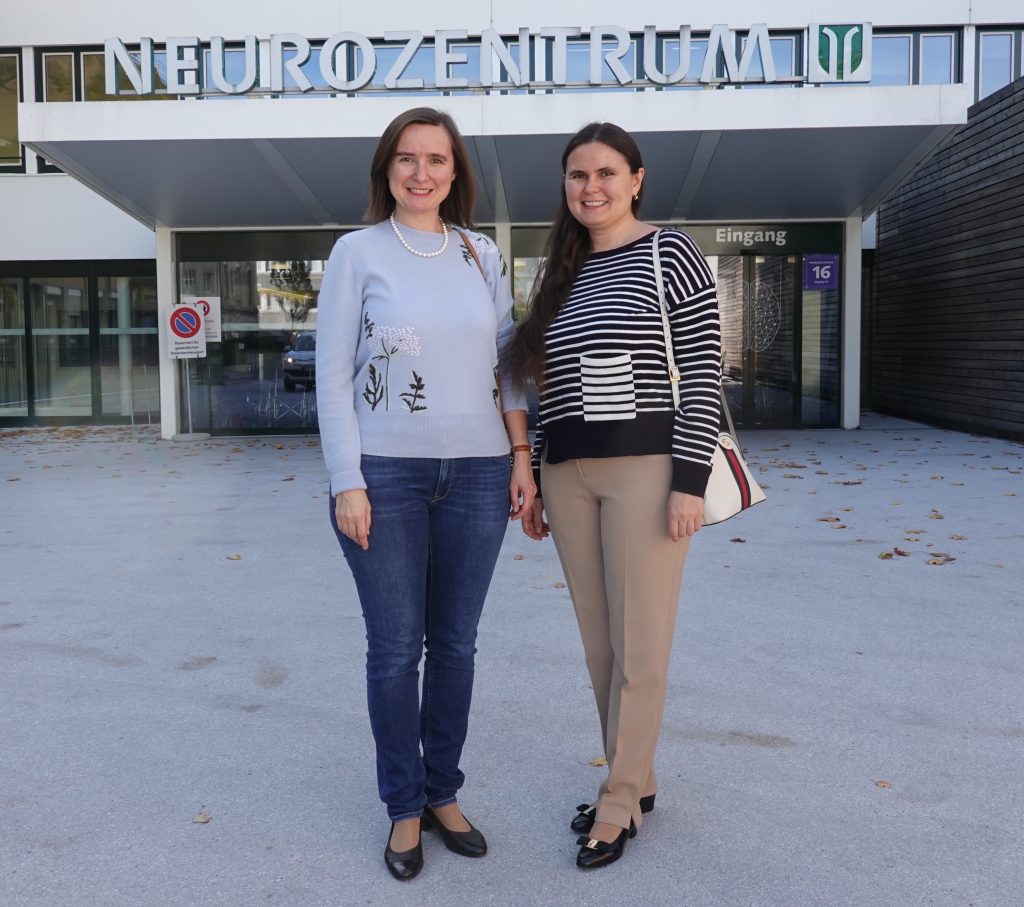Two Ukrainian doctors: Sisters and soulmates

Antonina and Kateryna Antonenko came to Bern fleeing the war in Ukraine. The two medical professionals received a grant from the Swiss National Science Foundation (SNSF) to work and research at the Inselspital for one year. In this interview, the two sisters talk about the differences between working as doctors in Bern and Kyiv.
Antonina and Kateryna, how have you settled into your new lives in Bern?
Kateryna: When the war started, we thought it would be over very quickly, but that turned out to be wrong. As the war went on it was no longer possible to continue our scientific work. We were scared and decided we wanted to leave.
We always support each other. If one of us went abroad and the other stayed in Ukraine we would be very worried. So, we decided to apply for two grants, each in our respective fields. We are very grateful for the SNSF support; it helped us not only to survive and not to give up, but also to continue our scientific work.
Antonina: Before coming to Switzerland, I thought that since Switzerland is such a rich country people would be arrogant. I was wrong: people here are really open, easy to talk to and want to help you.
The Bernese dialect was difficult for us to get used to at first. We speak standard German fluently and passed a language test on level C1. With time we started getting used to the dialect. Now I sometimes even try to answer in Bärndütsch.
You are both doctors: how did you choose your fields of specialisation?
Kateryna: I am a neurologist and treat patients who had a stroke. A stroke is a devastating disease, which results in a lot of functional disabilities for the patients. I have been in this field for ten years and it still inspires me. Studying stroke medicine opened for me the interesting world of international collaboration. I went to the European stroke summer school in Perugia, Italy, during my clinical fellowship. There I met doctors from all over the world.
Antonina: I saw with what interest my sister studied medicine and that made me want to study medicine too. I specialise in gastroenterology, which focuses on the digestive system. The defining moment for me was working for a month at Vienna General Hospital, where I saw many patients with a fatty liver but who did not drink any alcohol, which made me want to learn more about liver diseases.
How is researching and working as a doctor in Bern different compared to Kyiv?
Kateryna: The access to data is much better here than in Ukraine. Everything is digital and it is much easier to see previous examinations of patients. In Ukraine, a lot of patient records are on paper and sometimes patients themselves bring their own documents.
Antonina: Here people also work in multidisciplinary teams, where we discuss cases together. We support each other and work for a common result as a team. In Ukraine, we do not have such teams or such contacts in other fields. Every discipline works more separately.
Kateryna: Sometimes colleagues call us when they treat patients from Ukraine. We get about 2-3 such calls a week. Many of them do not speak German. The problem is that translating programmes do not help when the patient is confused or cannot speak at all, for example, if a patient has a stroke. In these instances, we get a chance to help Ukrainian people who also fled the war.
Now we want to learn French. It is impossible to speak to patients if you do not speak their language. Also, when you study something and when you receive knowledge you develop – and is that not the purpose of life? With education, our lives continue.
About the SNSF grant
The Swiss National Science Foundation (SNSF) and Scholars at Risk (SAR) have been supporting researchers who had to flee Ukraine with 9 million Swiss Francs. Together with 20 Swiss institutions, this funding has allowed 100 scientists to continue their work in Switzerland. The SNSF has decided to continue funding their research for another year with a new funding call for up to 60’000 Swiss Francs per person.
Text: Caspar Bienek
Image: Antonina and Kateryna Antonenko